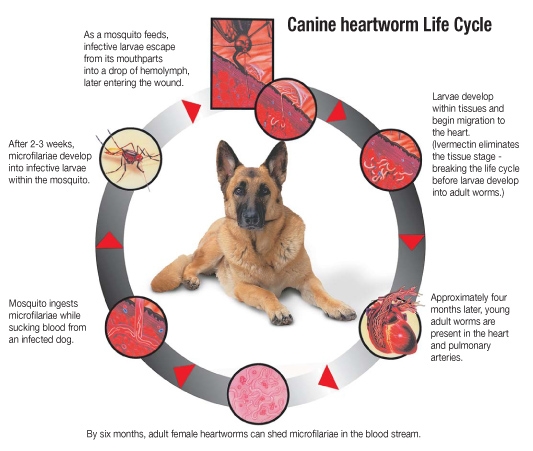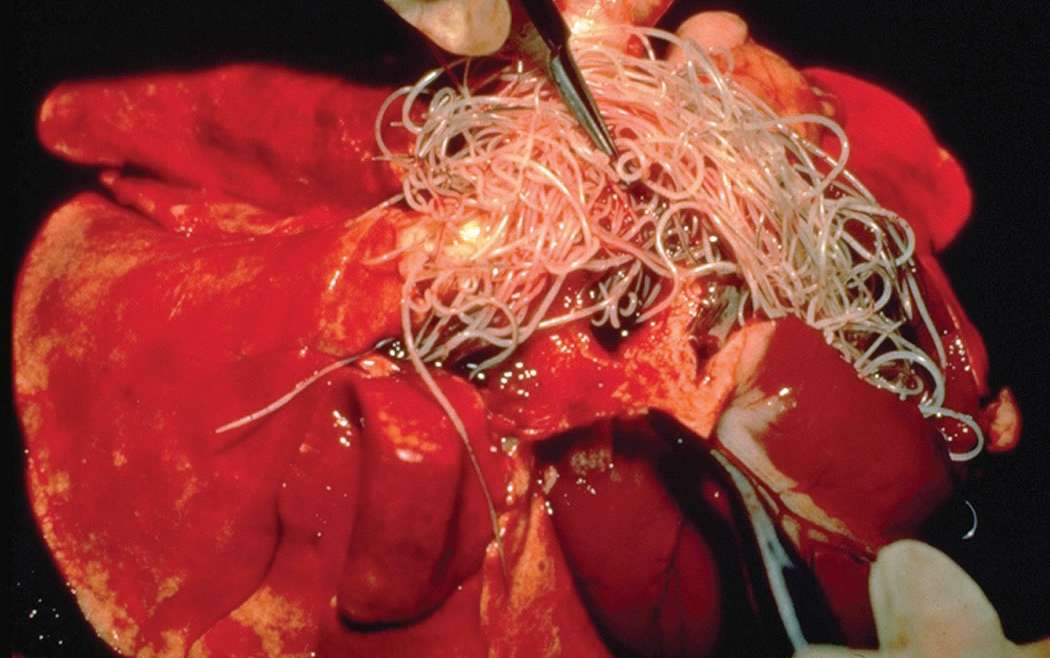With spring just around the corner, many plants and creatures come back to life. Among those creatures is the pesky mosquito. Personally, I hate mosquitos as they can take away the enjoyment of a long hike through our nature trails and leave itchy bumps on your skin. More importantly, however, the mosquito can carry a parasite that can be detrimental to your dog’s health. That parasite is none other than the infamous heartworm.
Heartworms, in their name, like to set up shop in the dog’s heart and pulmonary arteries. Clinical signs in a dog can range from mild cough and exercise intolerance to more severe signs like congestive heart failure, high blood pressure, and even death. Heartworm left untreated in the dog can leave permanent scarring in the heart and lung tissue of the host and lead to life-long cardiovascular complications.

A heartworm infestation will show positive on a heartworm test 4-7 months after the mosquito has transmitted the parasite to the dog. This is why we commonly recommend a heartworm test in the spring after the long winter months to ensure accurate test results for the disease. If your dog comes back positive for heartworm, it is not wise to give them heartworm prevention. An animal that receives heartworm prevention that is positive for heartworm disease can cause some of the adult worms in the host to die. When the adult worms die, they can trigger an anaphylactic reaction in the animal which can be life-threatening. On top of that, blood clots can form in the hosts blood stream and get stuck in certain parts of the body like the arteries and lung tissue which can result in death. This is why it’s important you have your veterinarian implement a treatment protocol before placing your dog back on heartworm preventatives.
The treatment protocol is by no means inexpensive. It requires a series of intramuscular injections of the adulticide, possibly a course of antibiotics and a reducing dose of steroids to eliminate the parasite from the dog. Depending on the protocol, your dog may have to have a treatment for the microfilaria. It’s imperative the animal is exercise restricted during the treatment protocol to ensure blood clots do not form in the animal. Given the complications and costs associated with a heartworm infestation, it’s much more cost effective to keep your pet on heartworm preventatives during the warm months here in the UP. This is just another one of the many reasons why I’m not fond of mosquitos.


Recent Comments